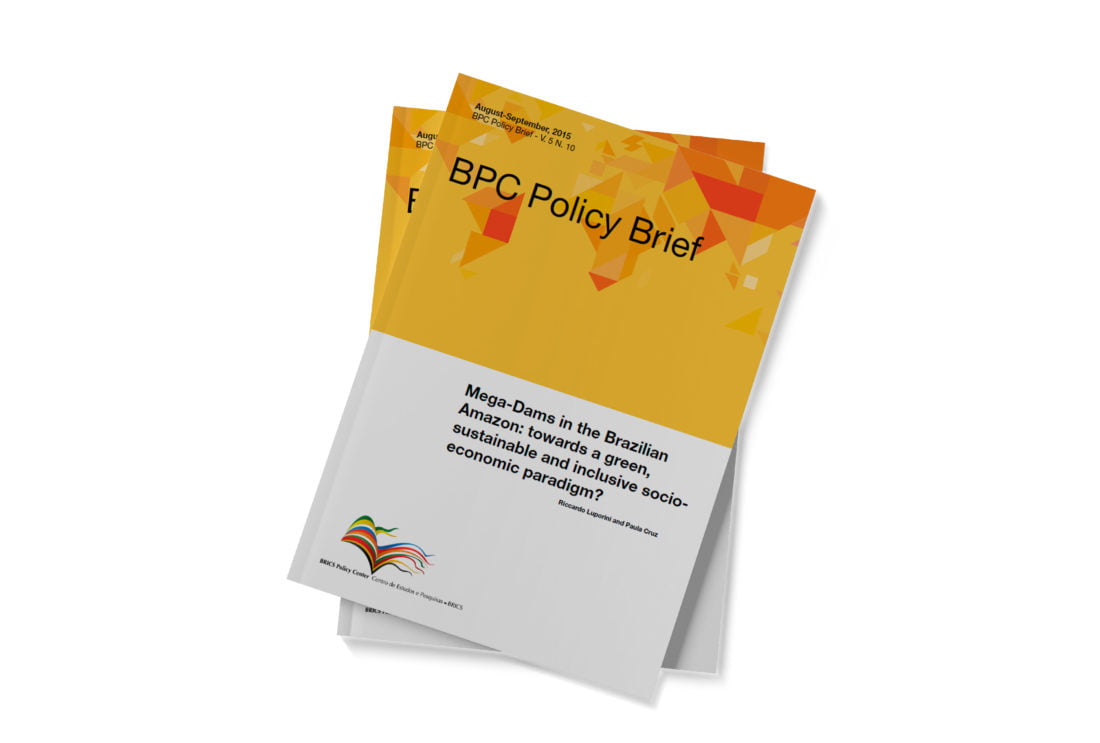
Mega-Dams in the Brazilian Amazon: towards a green, sustainable and inclusive socio-economic paradigm?
In the last few decades, and especially in the wake of the recent economic crisis, the global economic landscape has been altered while developing countries, particularly those in the BRICS group, have increased their economic and political power. The recent crisis, however, is not only economic or financial; today’s world faces a major socio-environmental crisis. The existing economic system based on the overwhelming dominance of nature and ruthless exploitation of natural resources appears to have exceeded the resistance limits of our planet. It is now urgently necessary to question our current system of production and to pursue innovative economic and social initiatives aimed at forging new developmental patterns that are both sustainable and inclusive. In light of the increasing economic and bargaining power of the BRICS countries, this Policy Brief argues that the BRICS have the capacity to lead this process of change, and that Brazil, in particular, should play a leading role in this socio-economic transformation.
However, in their pursuit of high and stable economic growth, Brazil and the other BRICS countries have played an active role in damaging the environment through mega-development projects that are usually far from being green and sustainable. A particularly egregious example of environmentally irresponsible development in a BRICS country is the mega-dams projects in the Brazilian Amazon, which has caused significant socio-environmental harm to the irreplaceable Amazon Basin Biome. This Policy Brief aims to analyze both the benefits and harms of this project. We argue that, in the long run, Brazil should attempt to regain its environmental leadership at the global level by conceiving and gradually applying a new development approach to the Amazon. Such an approach should utilize local, small-scale development projects. The other BRICS and emerging countries may then follow the Brazilian example to initiate a shift towards a new green, sustainable and inclusive socio-economic paradigm on a global scale.

